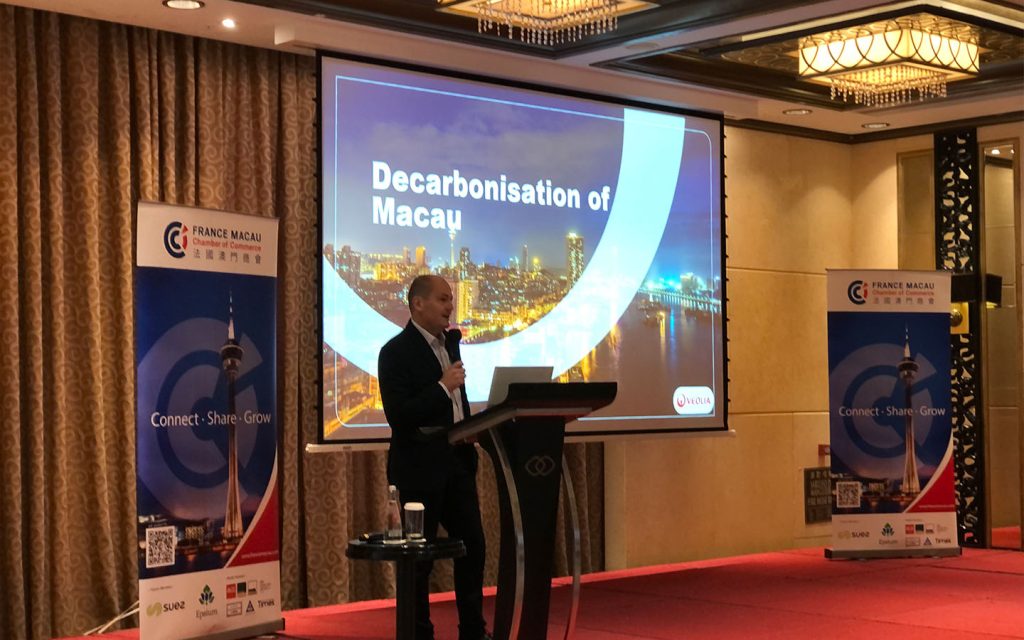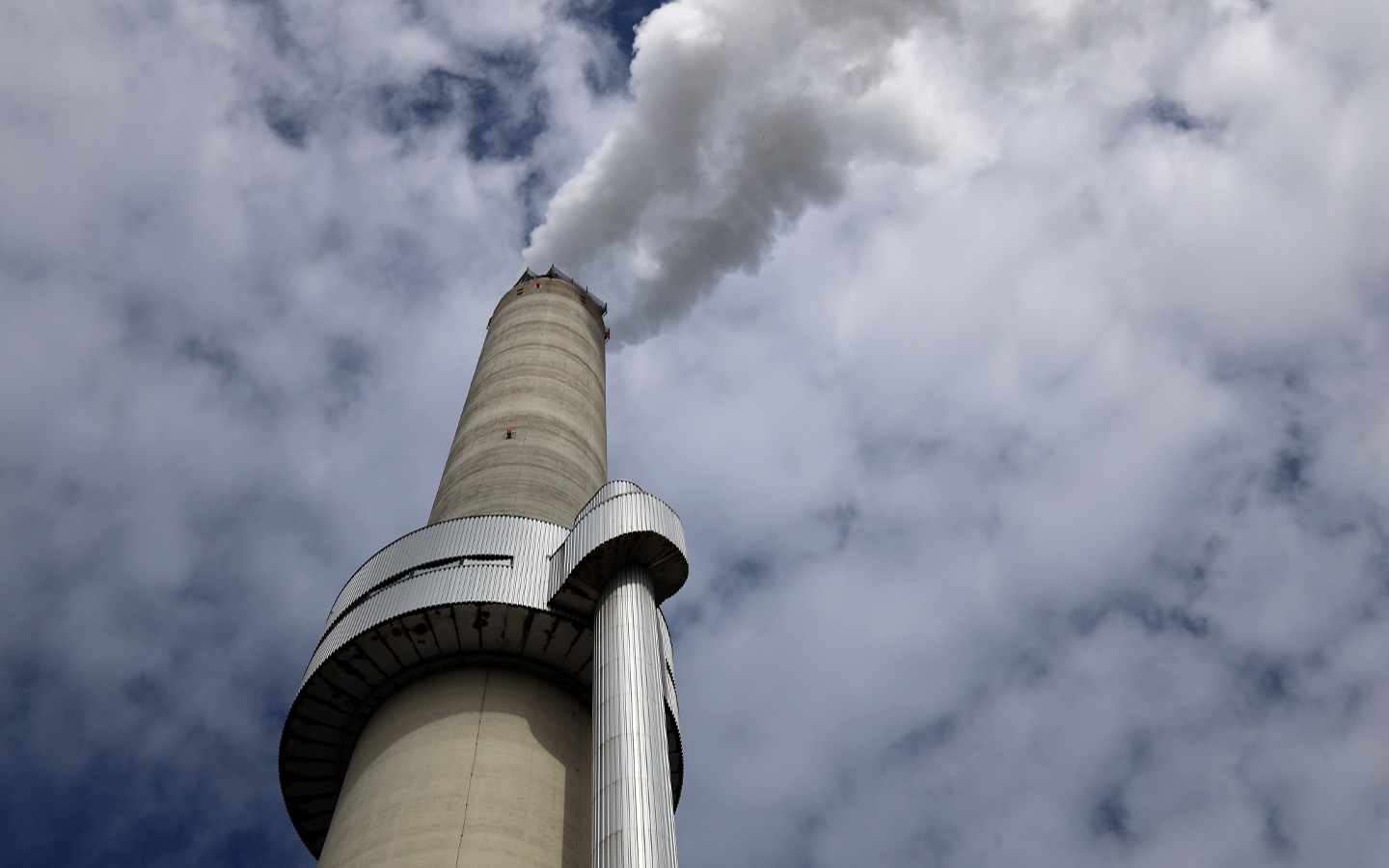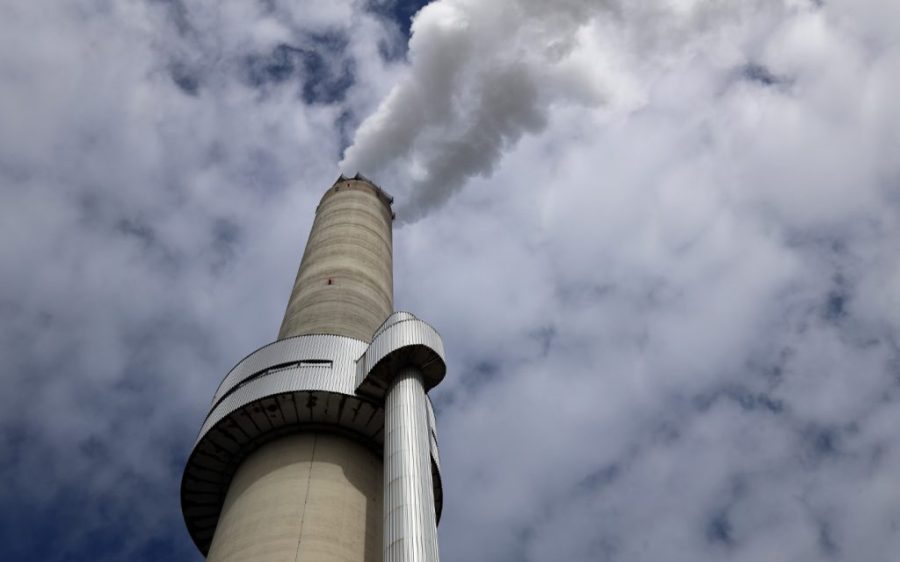Among the growing number of ideas aimed at tackling climate change, the most practical solutions are often the least conspicuous, remarked Laurent Pelletier, chief executive officer of Veolia, presenting at Tuesday’s France Macau Chamber of Commerce (FMCC) gathering at the Sofitel. He emphasised that the cornerstone of any conservation approach is one where less energy is ultimately being consumed.
Such strategies have their downsides. Macao’s annual carbon emission levels have risen each year since 2022, as the pickup corresponds to a recovery of inbound tourism, laying bare the challenges of upholding Macao’s economic prosperity alongside a green initiative within Beijing’s own framework to address climate change.
[See more: Can Macao cut carbon emissions to almost zero by 2050?]
In a few months, Macao is set to conclude the second year of a long-term decarbonisation strategy first introduced in 2023. Like Beijing, the city is targeting peak carbon output before 2030 but also looking to achieve carbon neutrality by 2050, ten years ahead of the national dual carbon mandate. However, complicating those goals is the SAR’s energy profile, where 90 percent of its power is generated outside, while 90 percent of the total is used by tertiary industries.
Behind the scenes
The rollout has been mired in several obstacles. The toughest hurdle is building trust among the public and encouraging their support, the speaker noted. “When one sees three separate recycling containers where each bag ends up at the same incinerator, confidence in the system is questioned.”
But simultaneous to these household initiatives, behind the scenes, business leaders are looking at green financing to play a greater role in aligning monetary incentives. The FMCC presentation comes almost a year after the city launched the Macao International Carbon Emission Exchange (MEX), a trading platform that connects China’s dual carbon goals with international climate markets.
“The momentum brought on by the MEX is encouraging” describes Eduardo Buisson Loureiro, an international lawyer and arbitrator based in Macao. Given the length and costs of climate related projects, in tandem mechanisms are needed to finance solutions that are outlined in the government’s six pillar strategies to achieve its dual carbon objective, which mentions specifically the construction of low-carbon energy systems, green transformation of land transport, and energy recovery.
MEX is now intertwined with Macao’s debt market. Green bonds, coordinated by the China (Macao) Financial Asset Exchange (MOX), finance projects producing MEX registered carbon credits which upholds a coherent green finance ecosystem for those projects and stabilises financial outcomes, the lawyer explains.

Moving together toward a greener Macao
Cross-border green financing may prove to be more feasible. Back in September, MEX signed a memorandum of understanding with the Hong Kong Exchanges and Clearing Limited, Guangzhou Emissions Exchange, and Shenzhen Green Exchange, to accelerate carbon markets and green finance ecosystems within the Greater Bay Area (GBA).
Carbon pricing could also gain additional attention ahead of the 30th United Nations Climate Change Conference (COP30) in November. Starting next year, Europe will introduce its Carbon Border Adjustment Mechanism (CBAM), effectively taxing EU exporters based on their carbon emissions.
“By linking capital markets to verified environmental projects, this enhances transparency, and thus trust at the corporate level,” says Loureiro, who sees Macao’s alignment with an international environmental, social and governance (ESG) framework offering additional tools to achieve its decarbonisation goals.
[See more: MGM is to start recycling its playing cards in a major step for the local environment]
On the ground though, transporting physical waste faces tangible restraints. While there are greener advantages to recycling different types of waste across the GBA, costs or compliance barriers discourage those as sustainable answers. These also coincide when municipalities generally prefer a closed-loop approach to recycling, Pelletier explained.
Other obstacles are unique to Macao. According to the speaker’s presentation, fifteen percent of the energy is directly consumed by the casinos, where due to security concerns, nearly 30 tonnes of playing cards are incinerated each week, drawing calls for a recycling scheme that prevents the release of unwanted chemicals into the air.
Legislators have shown to be too ambitious on certain initiatives, which can undermine the cause they are trying to help. “What works on paper is sometimes harder to implement in real life,” he said, reflecting a concern shared by many in the business community who are hoping for a resolution that benefits both the economy and the environment, rather than a zero-sum trade-off.






